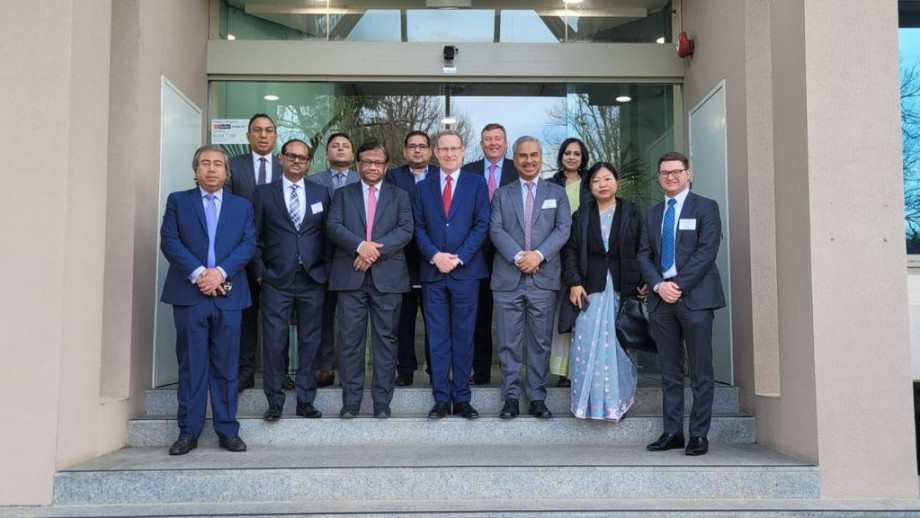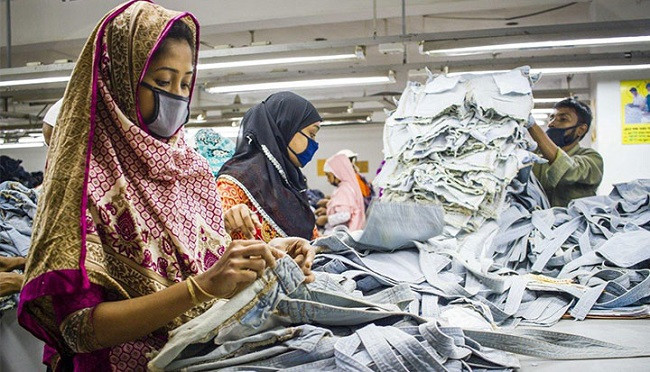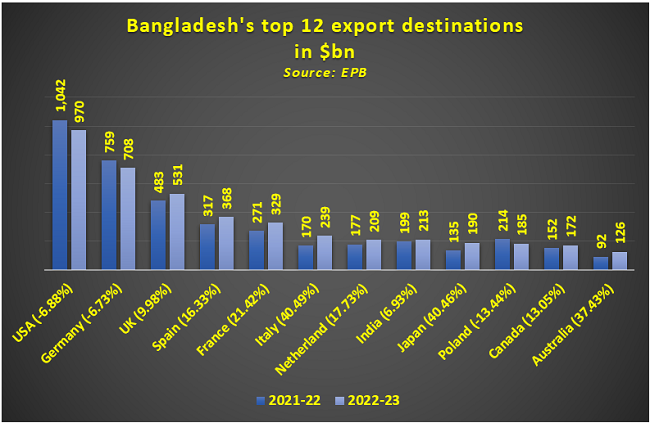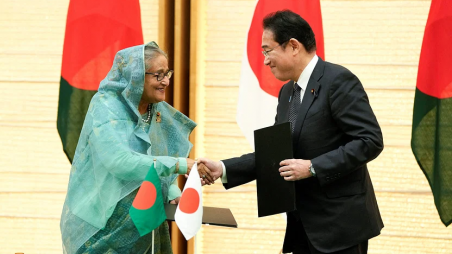RMG and allied sectors claim major share in National Export Trophy FY ’21
Rifat Garments Ltd will receive ‘Bangabandhu Sheikh Mujib Exports Trophy’ as the best exporter of FY ’21
Sayed Abdullah
The government is going to award top exporters with the ‘National Export Trophy’ for the maximum foreign currency earner of the country in the 2020-21 financial year (FY). And not surprisingly, the readymade garment (RMG), textile, and accessories and packaging sectors claimed the major share of the total list of 73 exporters.
Through a gazette notification on 25 July, the Commerce Ministry published the names of the award-winning companies for their performance in the country’s export earnings.
Rifat Garments Ltd – a concern of Ha-Meem Group – was selected for the ‘Bangabandhu Sheikh Mujib Export Trophy’ as the top exporter of the country in FY2020-21.
In the woven wear category, Snowtex Outerwear Ltd has been named for gold, AKM Knit Wear Ltd for silver and Tarasima Apparels Limited for bronze trophy.
While in the knitwear category, Flamingo Fashions Ltd for gold, GMS Composite Knitting Industries Ltd for silver and Liberty Knitwear Ltd was selected for bronze trophy.
| FY 2020-21 export trophy-winning textile, apparel and accessories factories | ||
| Sector | Name | Category |
| Woven | Snowtex Outerwear Ltd | Gold |
| AKM Knit Wear Ltd | Silver | |
| Tarasima Apparels Limited | Bronze | |
| Knitwear | Flamingo Fashions Ltd | Gold |
| GMS Composite Knitting Industries Ltd | Silver | |
| Liberty Knitwear Ltd | Bronze | |
| Spinning (yarn) | Badsha Textiles Ltd | Gold |
| Square Textiles Ltd | Silver | |
| NZ Textile Ltd | Bronze | |
| Textiles (fabrics) | Ha-meem Denim Limited | Gold |
| Envoy Textile Ltd | Silver | |
| Akij Textile Mills Ltd | Bronze | |
| Packaging and accessories | Montrims Ltd | Gold |
| M&U Packaging Ltd | Silver | |
| MS Uniglory Packaging Industries Limited | Bronze | |
| Home textiles and specialized textiles | Zaber & Zubair Fabrics Limited | Gold |
| Momtex Expo Ltd | Silver | |
| Terry towel | Noman Terry Towel Mills Ltd | Gold |
| EPZ’s 100% Bangladeshi-owned readymade garments (knit and woven) | Universal Jeans Ltd | Gold |
| Pacific Jeans Limited | Silver | |
| NHT Fashions Ltd | Bronze | |
| EPZ’s other products and services | Padma Spinning & Composite Ltd | Gold |
| RM Interlinings Ltd. | Silver | |
| Star Packaging & Accessories Ltd | Bronze | |
| Women entrepreneurs | Pioneer Knitwears (BD) Ltd | Gold |
| Bea-Con Knitwear Limited | Silver | |
| Ibrahim Knit Garments (Pvt) Ltd | Bronze |
Badsha Textiles Ltd, Square Textiles Ltd and NZ Textile Ltd have been selected for gold, silver and bronze trophy under the yarn producer category.
In the textile fabrics category, Ha-meem Denim Limited has been selected for gold, Envoy Textile Ltd for silver and Akij Textile Mills Ltd for bronze trophy.
In packaging and accessories producer, Montrims Ltd has been selected for gold, M&U Packaging Ltd for silver and MS Uniglory Packaging Industries Limited for bronze trophy.
Zaber & Zubair Fabrics Limited has been selected for gold trophy and Momtex Expo Ltd selected for silver trophy as home and specialized textiles producer.
Noman Terry Towel Mills Ltd selected for gold trophy under the terry towel producer category.
Readymade garments in EPZ category, Universal Jeans Ltd, Pacific Jeans Limited and NHT Fashions Ltd have been selected for gold, silver and bronze trophy while other products and services in EPZ category, Padma Spinning & Composite Ltd has been selected for gold, RM Interlinings Ltd for silver and Star Packaging & Accessories Ltd for bronze trophy.
Pioneer Knitwears (BD) Ltd has been selected for gold, Bea-Con Knitwear Limited for silver and Ibrahim Knit Garments (Pvt) Ltd for bronze trophy under the women entrepreneurs’ category.

























